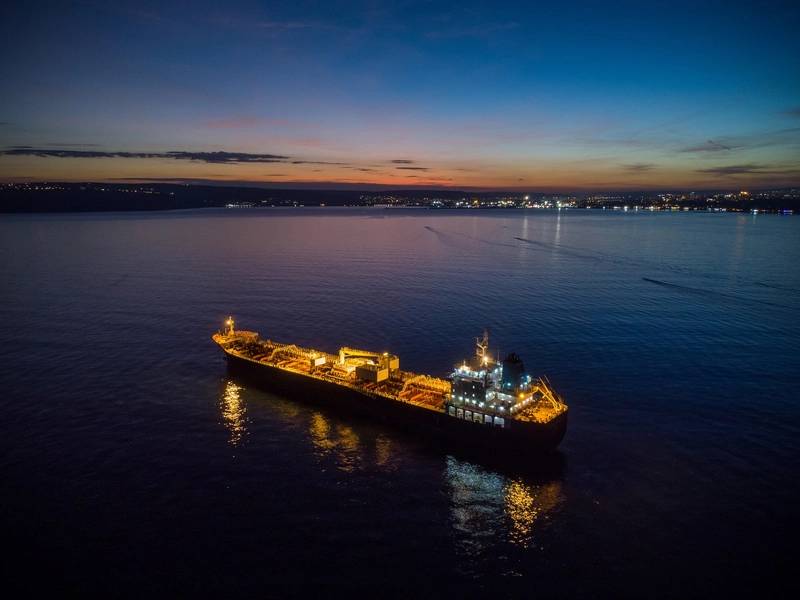US, UK Ship Investors Hit by Soaring Red Sea Insurance
War underwriters have raised the premiums they charge to U.S., British and Israeli firms by as high as 50% for ships transiting the Red Sea and some providers are avoiding such business due to targeting of the vessels by Yemen's Houthis, sources said.
Attacks by the Iran-aligned Houthis since November have slowed trade between Asia and Europe and alarmed major powers. The Houthis say they are acting in solidarity with Palestinians as Israel's war against Hamas militants in Gaza grinds on.

Many companies have opted to re-route ships around southern Africa although some vessels are still sailing via the Red Sea.
Ships with a link to the U.S., Britain or Israel are now paying 25-50% more in war risk premium than other ships to navigate the Red Sea, said David Smith, head of hull and marine liabilities at insurance broker McGill and Partners.
Two insurance industry sources said ships with U.S., UK or Israeli links would be quoted a higher rate, even above 50%.
"The ships that have so far had problems, almost all of them have got some element of Israeli or U.S. or UK ownership in there somewhere," said Marcus Baker, global head of marine and cargo with insurance broker Marsh.
Baker said there was "exclusionary language" being introduced for cover involving UK, U.S. and Israeli interests.
"We are seeing this, but it's not everywhere because there are certainly markets out there that are not putting that language on."
The two sources said some underwriters were avoiding covering such business for now.
In one of the most serious incidents, a tanker operated by a UK-based company whose cargo was owned by global commodities trader Trafigura was hit by a missile that caused a fire onboard which was put out.
Costly
Insurance industry sources said that war risk premiums being quoted for Red Sea voyages had hovered around 1% of the value of a ship in the past 10 days, up from around 0.7% previously with various discounts applied by underwriters.
This translates into hundreds of thousands of dollars of additional costs for a seven-day voyage.
"The apparent safe passage offered by Houthis to vessels flagged or owned by Russia, China - including Hong Kong - and Iran is designed to provide a degree of assurance to commercial markets associated with those countries," said Munro Anderson, head of operations at marine war risk and insurance specialist Vessel Protect, part of Pen Underwriting.
Ships are also adding messages to their public ship tracking profiles indicating they have Chinese crew onboard or have no links to UK, U.S. or Israeli companies, shipping data showed.
Israeli container line Zim has said it has been diverting its vessels away from the Red Sea.
British maritime risk advisory and security company Dryad Global has advised its clients to avoid the region until further notice.
"I am surprised that U.S. and U.K.-flagged or operated ships are still transiting within the Red Sea and Gulf of Aden. They represent the highest risk categories of vessels for the potential of an attack within this region," said Dryad Global's CEO Corey Ranslem.
"Ships from Iran, Russia and China are the only flagged and operated vessels that could potentially safely transit through this region. The Iranian-backed Houthis will not attack ships with those flags or associations as both Russia and China are sympathetic to Iran."
There are growing concerns of a spillover which could hit other ships.
"The threat level to ships with Israeli, United Kingdom and United States interests remains high," a Feb 5 advisory note issued by major shipping associations said.
"However, all owners, operators, and crews should be cognizant their vessel could be misidentified and understand their risk of collateral damage."
(Reuters - Reporting by Jonathan Saul and Carolyn Cohn; Editing by Gareth Jones)
